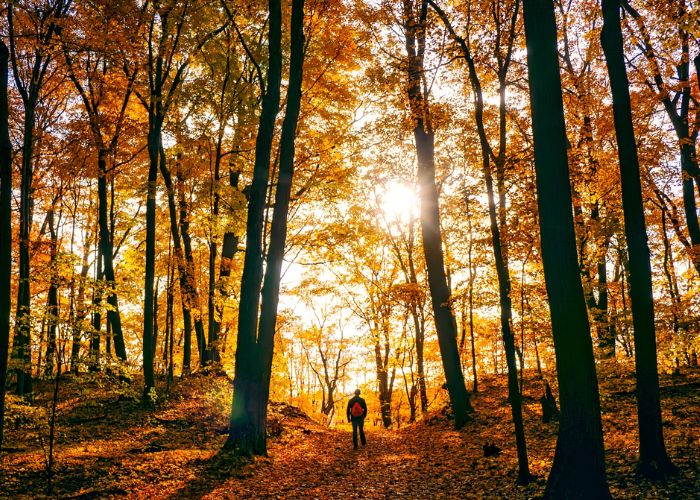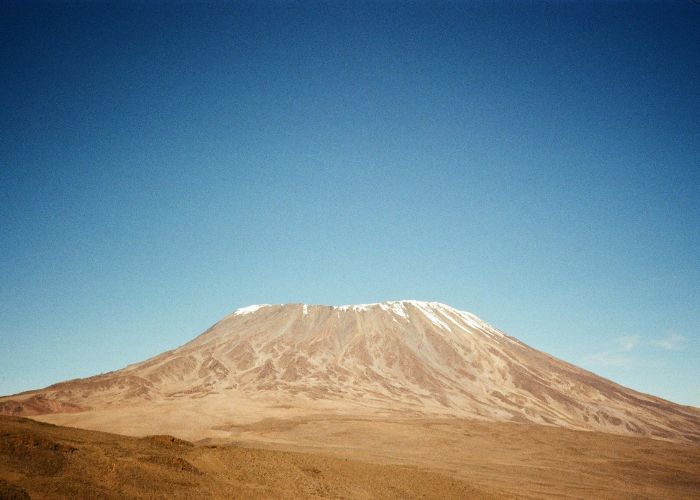Can You Wild Camp in the Lake District? Everything You Need To Know
- , by Laurence
- 12 min reading time
Discover if you can wild camp in the Lake District with Wood To Water's expert guide. Learn legalities, tips, and gear for an unforgettable adventure.
Do you dream of Lake District wild camping but aren't sure where you can legally set up camp or if you can wild camp at all? No need to worry. We've done all the research for you and can tell you everything you need to know about wild camping in the Lake District.
We'll go over where you can legally set up camp, what regulations and restrictions are in place for wild camping, and how to ensure that you get the most out of your experience with minimal impact on nature. So grab your camping gear, and let's hit the great outdoors!
What Are the Laws Surrounding Wild Camping in the UK?

The laws about wild camping in the UK are notoriously unclear, which makes it difficult to know where, when, and how you can wild camp.
Ultimately, it's important to understand that wild camping in England and Wales is only permitted when you have express permission from the landowner. Thankfully, many landowners are happy to let campers wild camp on their land as long as they respect the area and follow the 'leave no trace' principles.
The laws in Scotland are more relaxed, and wild camping is allowed anywhere on unenclosed land due to their right-to-roam laws.
What's the Difference Between Wild Camping and Fly Camping?
It's important to understand the difference between wild camping and fly camping because, while many landowners will tolerate wild camping, fly camping will not and can make it much more difficult for wild campers to find landowners who are willing to allow wild camping on their land.
Fly camping (like fly-tipping) is the practice of people setting up camp in an undesignated area, often without permission, and leaving traces of their camp when they leave. This can take the form of leaving litter, causing burn marks on the floor from fires, and even leaving human waste behind.
All of this is extremely detrimental to the local environment and wildlife. It also gives other wild campers a bad reputation for being anti-social which makes wild camping even harder. Be a wild camper, not a fly camper!
Read More: Wild Camping Myths Debunked
Can You Wild Camp in the Lake District?

Now you know the laws surrounding wild camping in the UK, what does that mean for wild camping in the Lake District?
The short answer is: yes, you can wild camp in the Lake District. However, you need to make sure you get permission from the landowner before you plan your trip. The majority of landowners are open to allowing wild camping on their land unless they've had bad experiences with fly camping in the past.
Where Can You Wild Camp in the Lake District?
While the majority of landowners are going to be happy to let you wild camp, especially if you seek prior permission, there are some areas that are off-limits.
The land owned by the Lake District National Park is not available to wild campers. Even if you reach out to ask for permission, it won't be granted. This is a hard line that the owners of the National Park have drawn to protect their land and the natural beauty of the area.
What Are the Rules For Wild Camping in the Lake District?

Camp Above the Highest Fell Wall
One of the most common rules for wild camping anywhere is to pitch your camp above the highest fell wall. This is usually 1200ft above the lowest point in an area. Following this rule essentially means that you're camping a reasonable distance away from towns, buildings, villages, and lake shores.
Not only does this keep you safe by ensuring you're camping in a safe place, but it also means that you're not disturbing locals, which can lead to wild camping no longer being allowed.
Leave No Trace
This is the most obvious and well-understood rule of wild camping. The point of wild camping is to enjoy the natural beauty that surrounds us in nature. Nothing ruins that experience quicker than seeing litter, fire burns, and poorly buried waste. Therefore, it's important to not contribute to those things when you're wild camping.
Make sure you take all your things with you when you leave, and be responsible in how you deal with natural waste. You could invest in a DD Hammocks Organiser Bag Set or a small camp bin to help you keep all your waste together.
Don't Light Fires

To maintain the beauty of wild camping spots, it's important to avoid lighting fires, even if they're raised off the ground. The point of this rule is to make sure you don't leave burn marks on the ground. This is another rule that helps protect the beauty of these secluded camping spots. It also works with the 'leave no trace' ethos.
It's also important to not light fires to keep the countryside safe, especially during the summer months. Lighting a fire when the ground and trees are dry can lead to wildfires and cause irreparable damage to the environment.
Keep Your Group Small
One of the main facets of wild camping is to be unnoticed. This means keeping your group as small as possible. The ideal number for wild camping is 1, but if you don't want to be a solo camper, groups of 2 or 3 campers are fine. We'd recommend not exceeding groups of 3 campers to avoid drawing too much attention to yourselves. It also means the best spots don't become too crowded with groups of campers.
Short Stays Only
The ideal stay at a wild camping spot is a single night. This might sound like a super short amount of time to stay, but the point of wild camping is to remain unnoticed. It's also unlikely that a landowner would grant permission for you to stay for more than one night.
The shorter your stay is, the less likely you are to accidentally leave any litter or mess because you won't have made as much. It also decreases the amount of natural waste you have to deal with, which is better for the environment no matter how careful you are.
Try to Blend In

Although having a bright green or orange tent can be useful for finding your pitch at a festival or at a campsite, it doesn't work for wild camping. You should opt for a tent that allows you to blend into your surroundings. Ideally, you want people to be able to walk near your camp and not know that you're there.
For tents that blend into surroundings easily, we recommend the DD Hammocks MultiCamo Pyramid Tent or the NatureHike Tagar Lightweight Tent. Both of these tents have the perfect colour palate to blend into your surroundings when wild camping in the Lake District.
Be Responsible With Sanitary Waste
It can be downright impossible to plan your camping trips around natural bodily functions. This means there's a chance that you'll end up camping when you or your campmate is menstruating. At a campsite, there are facilities to deal with the by-products of this. However, when you're wild camping, you don't get that luxury.
With the rise of eco-friendly, reusable sanitary products such as cups and period underwear, this is becoming less of an issue, but if tampons and sanitary towels are being used, you'll need to make sure you take them home with you. These products can't be buried along with other human waste as they're likely to be dug up by animals.
Choose Your Pitch Carefully

When setting up a wild camping spot, it's better to opt for a dry pitch instead of going through the hassle of digging drainage ditches or relocating boulders. By choosing a dry spot, you can ensure a more comfortable camping experience without having to worry about potential water pooling or uneven ground. It also means you don't have to disrupt nature in the spot you choose to camp in.
Toilet Responsibly
When it comes to wild camping, ensuring proper toileting practices is crucial. To maintain the integrity of the environment, it is recommended to perform toilet duties at a minimum distance of 30 metres from any water sources, like lakes. Additionally, it is advisable to bury the waste using a trowel. By following these guidelines, we can help preserve the natural beauty of our surroundings and minimise any potential negative impact on the ecosystem.
Our Top Tips For Wild Camping

Once you've found the best Lake District camping spots, there are a few things you should keep in mind to make your experience the best it can be. Our wild camping experts have put together a list of their top tips to help you get the most out of your wild camping trip at the lakes.
• Research your destination: make sure that wild camping is allowed in the area you are going to and if there are any specific regulations or restrictions.
• Pitch your tent responsibly: choose a spot where you won't cause any disruption or leave lasting damage, and make sure not to pitch up too close to other campers.
• Respect nature: don't light fires, and take all your trash with you when you leave. Make sure you don't disrupt the area by digging or rearranging things. (Digging to bury human waste is okay and necessary).
• Be prepared: make sure you have enough food, water, clothing and first aid supplies for your trip. Also, check the weather forecast before heading out!
• Leave no trace: make sure to clean up after yourself - remove all traces of your presence so as not to disturb wildlife or other visitors.
• Stay safe: take measures to ensure that your campsite is secure; keep away from steep edges, be aware of potential hazards, and don't camp in isolated areas. We always recommend telling a trusted person where you're planning on camping, for how long, and when to expect you to get home. Using 'what 3 words' can be useful too.
Read More: 17 WILD CAMPING ESSENTIALS FOR YOUR NEXT ADVENTURE
Get Ready For Your Next Wild Camping Trip With Wood To Water
Wild camping in the Lake District is a rite of passage for many wild camping enthusiasts, but not only is it important to make sure you approach the trip properly, you also need to make sure you've got all the right camping kit to keep you safe and comfortable during your trip.
When you're ready to embark on your wild camping Lake District trip, make sure you get all the kit you need from Wood To Water, from lightweight tents to camp gadgets, we've got everything you need to make the most of your off-grid adventure.
FAQs
Can You Camp Overnight at the Lake District?
It's recommended to only spend one night in a spot when you're wild camping to help minimise the effect of your presence on the environment.
What Happens if You Get Caught Wild Camping?
If you have permission from the landowner, all you'll need to do is corroborate this with them to prove you have permission to be there. If you're wild camping without permission, or you're on National Park land, you could face a fine of up to £2,500.
Is Wild Camping the Same as Stealth Camping?
Stealth camping is when you camp without permission or paying a fee in public or privately owned areas, often with no one knowing you're there. Stealth camping can be done while wild camping, but it is typically done in urban or suburban areas and often requires more secrecy than wild camping.
Where Are the Best Places to Wild Camp in the Lake District?
Wild camping is permitted in many parts of the Lake District. Popular spots for wild camping include Holme Fell, Sprinkling Tarn, Ennerdale Valley, Haystacks, and Lingmoor Fell.
Tags
Little more reading time?
-

, by Laurence Kay UK Foraging Guide: How to Stay Safe Outdoors
-

, by Laurence Kay A Hiker’s Ultimate Guide to Climbing Kilimanjaro
-

, by Laurence Kay The Ultimate Petra Hike Guide



